“We don’t want to be an old-school death metal band. But if you say ‘progressive death metal’, people expect hyper-sweeps and polyrhythms”: How Blood Incantation fused B.C. Rich, doom and David Gilmour to make one of 2024’s most talked-about metal albums
Metal Hammer named Absolute Elsewhere their album of the year. Paul Riedl and Morris Kolontyrsky explain how they made their masterpiece at the studio beloved by David Bowie, weaving ’70s prog and krautrock into death metal, and how to make a B.C. Rich sound like a Strat
![Blood Incantation's Paul Riedl [left] and Morris Kolontyrsky wear dark sunglasses and hold black BC Rich Ironbirds, a guitar Kolontyrsky says is surprisingly suitable for David Gilmour-style solos.](https://cdn.mos.cms.futurecdn.net/Ss6NubRqf9i7qk4yv287fh.jpg)
To borrow a tagline from 2001: A Space Odyssey, the death metal played by Blood Incantation is “the ultimate trip.” And like Stanley Kubrick, they too want to take you through the stargate.
Absolute Elsewhere – the Denver, Colorado band’s third full-length studio album, following 2022’s epic Timewave Zero EP – presents a cosmic perspective on metal guitar that’s more than just Morbid Angel beyond the stars. The new record expands on the genre’s animalism, merging the ambient menace of synthesizer with the wide-open neural pathways of ’70s prog and krautrock.
Blood Incantation’s DNA included prog from the get-go. What could be a more emphatic statement of intent than opening their debut album with Vitrification of Blood (Part One), a 13-minute epic with the ethereal resonance of funeral doom and swampy old-school death metal but also the interstellar aspirations of Dark Side of the Moon?
Frontman and guitarist Paul Riedl believes first contact with Absolute Elsewhere has fried some people’s perceptions of their earlier material. “We don’t want to be an old-school death metal band. We didn’t set out to be one,” he says.
“We love death metal, black metal, funeral doom, speed metal and heavy metal, prog, krautrock, ambient – all these things and more. And as we continue to develop our band’s initial idea, we develop as people, which allows us to make crazier and crazier music.”
Their second release, 2019’s Hidden History of the Human Race, was similarly provocative. Agile, kinetic and brutal, it had many properties you might expect from death metal – yet they chose the five-minute instrumental Inner Paths (to Outer Space) as the lead single to upend expectations.
Tracked at Hansa Studios, Berlin – where David Bowie worked with Brian Eno – Absolute Elsewhere has Tangerine Dream’s Thorsten Quaeschning guesting on synths/organ, making the krautrock links clear. Riedl and fellow guitarist Morris Kolontyrsky say what’s coming next will blow our minds again.
Get The Pick Newsletter
All the latest guitar news, interviews, lessons, reviews, deals and more, direct to your inbox!
Riedl agrees that Blood Incantation are a prog band who play death metal. There’s also a case to be made that they’re a jazz band playing progressive death metal. For example, Slave Species of the Gods opens Hidden History with a riff that’s more or less Morbid Angel’s Immortal Rites. Riedl says it’s passing the torch; but it’s just like Julian Lage dropping a Charlie Christian lick into a performance.
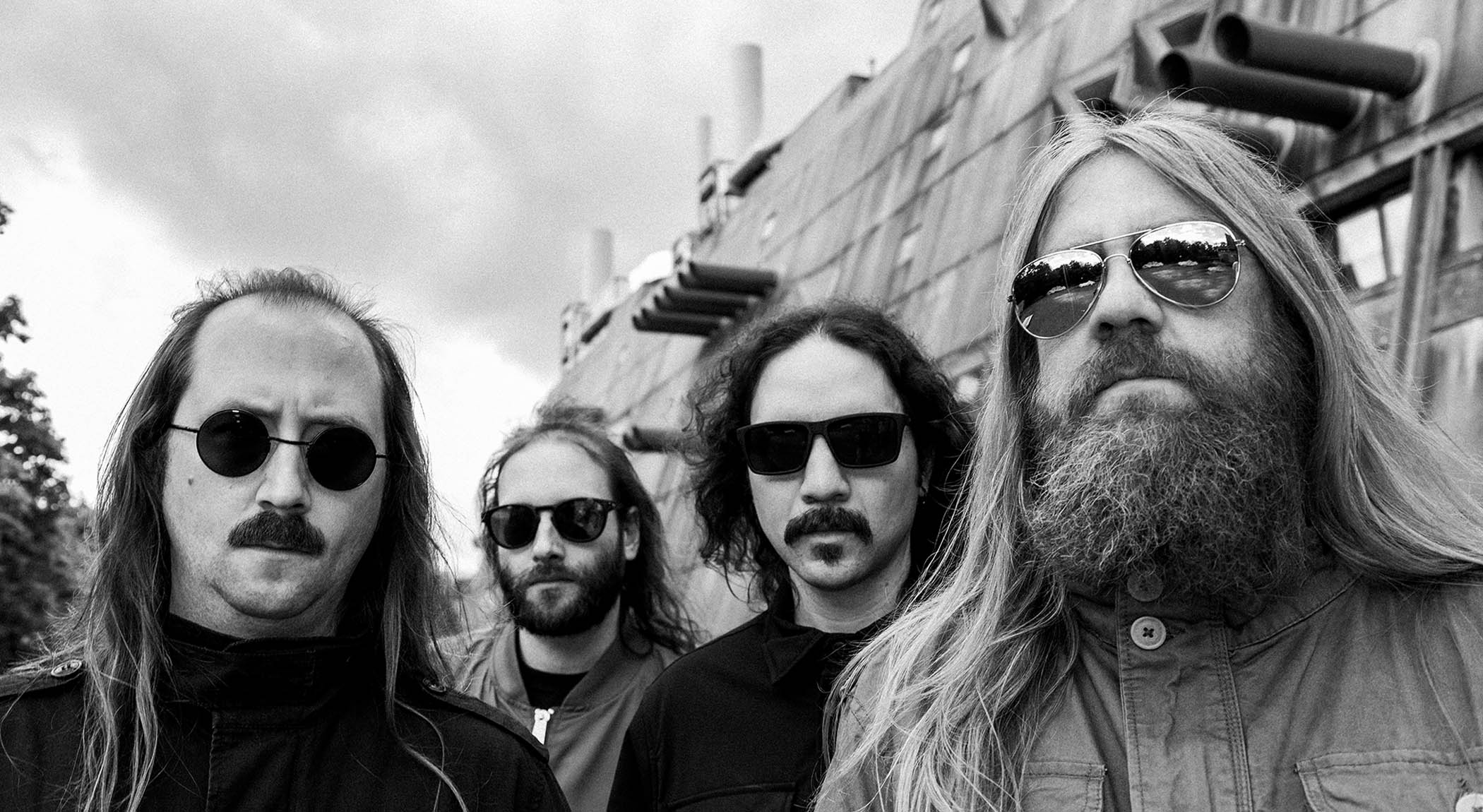
“I really like this type of reference, because it often gets lost in a lot of music,” says Kolontyrsky. “If you think of jazz and classical music – which is mostly what I was brought up with because of my dad – there’s always this thing of having to play the standards.
“If you go to a classical conservatory you have to learn Bach, Mozart, Beethoven. If you go to a jazz conservatory you have to learn Miles Davis, Charlie Parker, Coltrane. I wish more people would understand it that way instead of going on the internet and complaining, ‘Nope! That riff was already played.’
“Listen to blues, man; it’s a three-chord structure, every single time. It’s the same song – it’s about how you do it.” As is progressive death metal. Some confuse the word ‘progressive’ and with ‘technical’; for Riedl and Kolontyrsky, prog is all about ideas.
What does progressive death metal mean to you?
Paul Riedl: “Most times if you say ‘progressive death metal’ people expect hyper-sweeps and very technical polyrhythms. But I think progressive music is more in the idea of how you approach it, what you’re looking for, where to go with it. It’s less about the technique and more about the idea.”
Morris Kolontyrsky: “It’s also within the song structure. Camel is a classic prog band, and they do have some pretty technical parts, but albums like Moon Madness are very song-driven; there are lots of melodies, lots of lyrics, and the prog element on that record is really in the small changes that happen within the song structures.
“Genesis was way more musically progressive than Camel – but I’d say that Camel was a way better prog band because it’s so nuanced. You really have to focus to find where the prog lays.”
To indulge the “Blood Incantation as a jazz band” thought experiment, a lot of your compositions have that tension and release.
Riedl: “We like dynamics and we want it to ebb and to flow. We like music that reflects real life; the cosmic aesthetic symbolism isn’t sci-fi so much as it is metaphysical – it’s real. Life is extremely cosmic. We are on a planet in space. There are stars. There are galaxies. There are black holes. There are temporal anomalies…”
Kolontyrsky: “There are ancient fucking structures on Earth that we still don’t know about!”
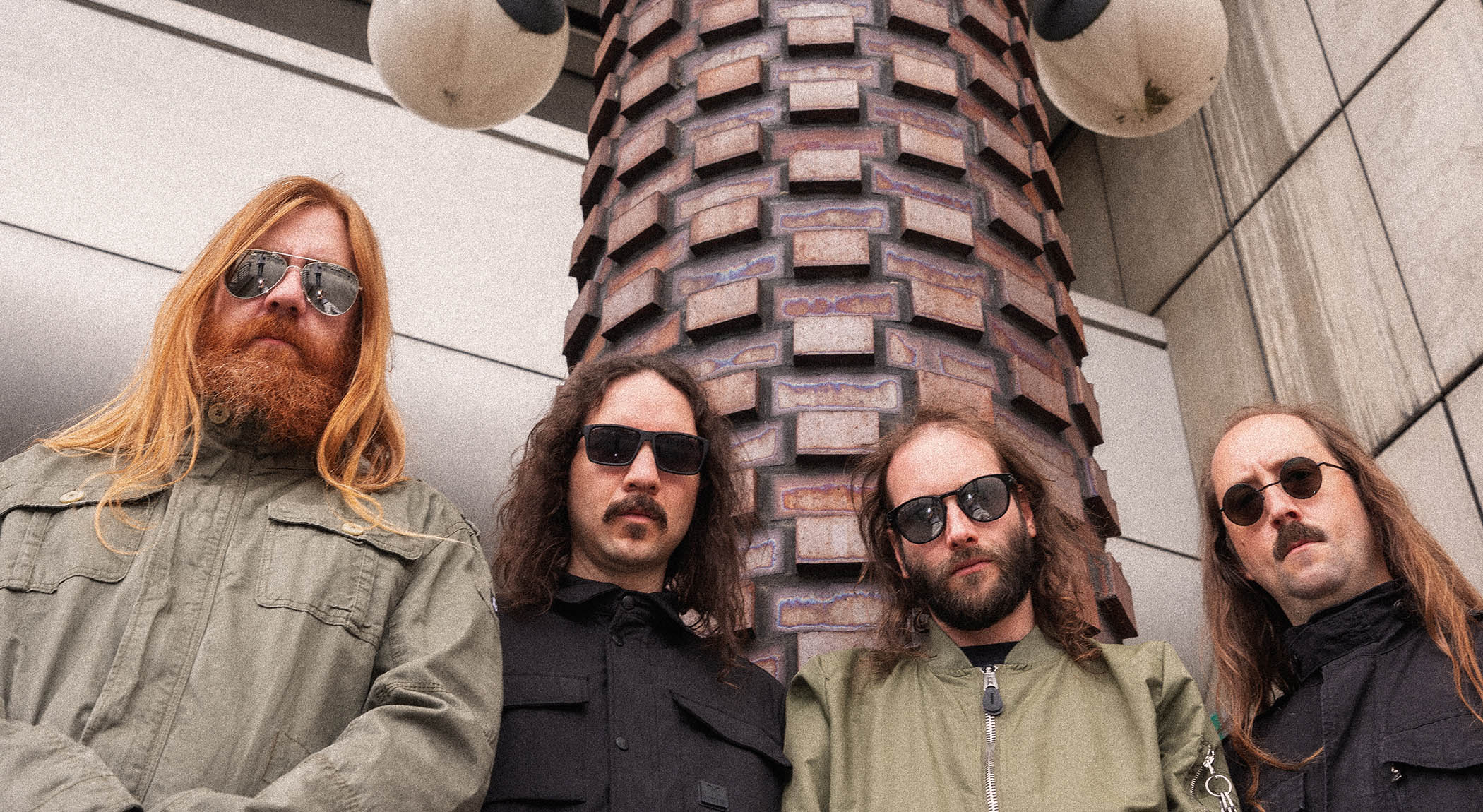
Riedl: “That’s what we’re talking about. It’s less about little green men, ‘Take me to your leader,’ and more about, ‘Holy shit! 6,000 years ago they built an entire monolithic temple about this!’”
Kolontyrsky: “The jazz comparisons are there if you want to make them – the evolution of music, especially metal, draws from a large pool of creativity, which is something I think our band does very well. But contemporary classical music is another thing to think about when you talk of tension.
A lot of people are like, ‘He’s definitely playing a Fender Stratocaster on that.’ It was actually a B.C. Rich Ironbird
Morris Kolontyrsky
“Composers like Rachmaninoff and Tchaikovsky really understood tension, because their life was tension. Even Chopin. Those nocturnes are beautiful but they’re full of tension. A lot of metal bands have been inspired by it, like Timeghoul.
“A lot of evil music takes inspiration from contemporary classical music, not just baroque music, which all these neoclassical shreddy guys are on about – like Yngwie Malmsteen playing Beethoven. A lot of that tension comes from our human experience, which is something we can learn from classical music.”
Krzysztof Penderecki is more heavy and discordant than most metal bands.
Riedl: “Yeah, Penderecki is a huge inspiration on Timeghoul specifically.”
Kolontyrsky: “And talk about repetition – that repetition builds tension like nothing else. It’s like the original drone music.”
What about the tools of the trade?
Riedl: “I have a B.C. Rich Stealth – a Frankenstein one that I bought in pieces with no electronics a couple of years ago. It’s got the old-school headstock. Also, it’s got the nameplate with the Blessed Are the Sick font with my last name.”
You both play B.C. Rich; sometimes they get underrated because people see the shape and forget that they’re real tone machines.
Kolontyrsky: “That David Gilmour-style solo on The Stargate, about two or three minutes into the song, a lot of people are like, ‘Oh, he’s definitely playing a Fender Stratocaster on that.’ I did use one on the record, but the solo was actually played on a B.C. Rich Ironbird. I just used the neck pickup. It sounds amazing. You can definitely make that guitar sound like a Strat.”
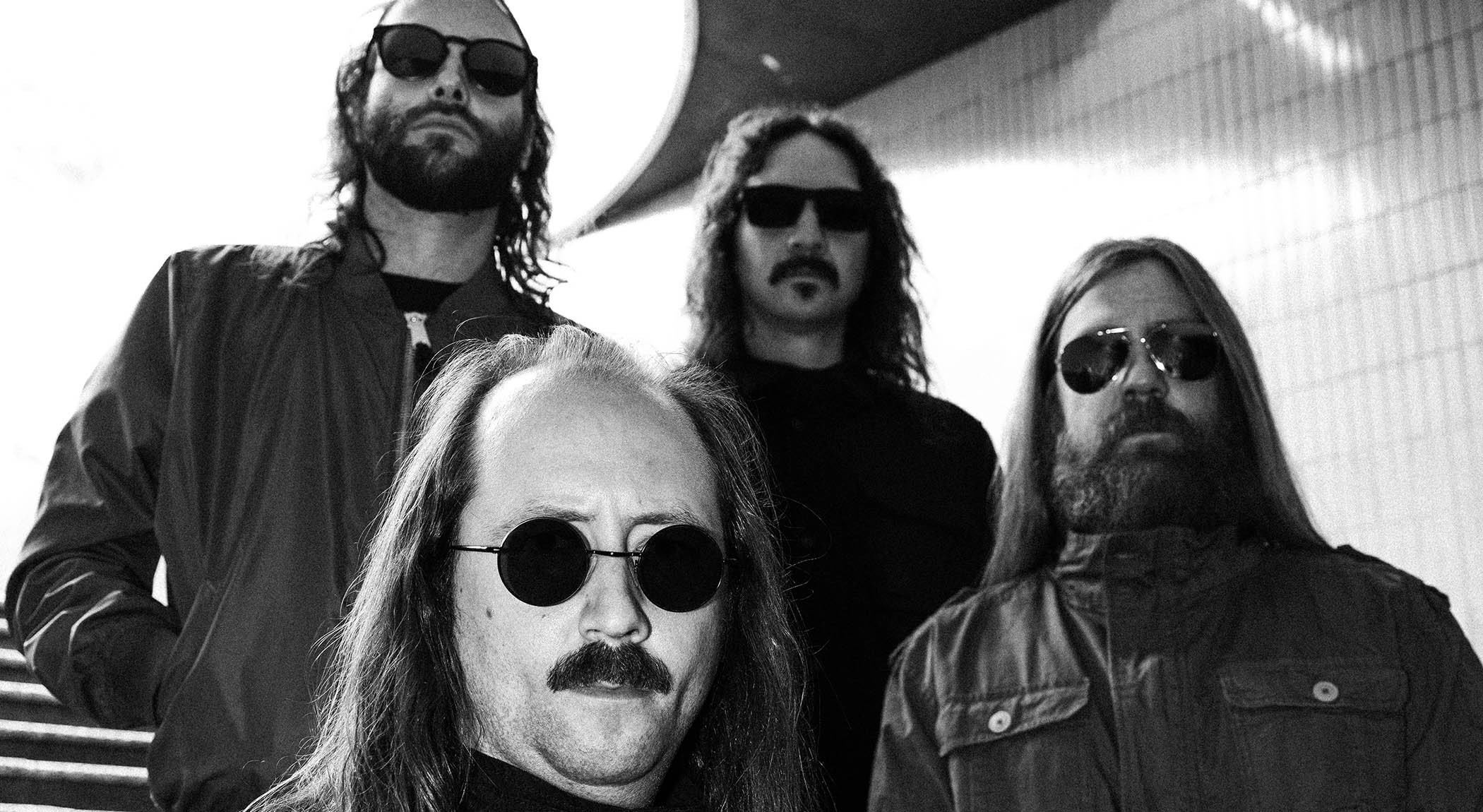
Your tone has evolved. Starspawn started out more gnarly and primordial; Hidden History was more articulate. What gear changes have you made to accommodate this?
Riedl: “The first two records are almost identical guitar setups. It’s two 5150IIs, or a 5150II and a 6150+, a Marshall square cab, 1960B, and then the same pedals both albums. Maybe there’s one extra delay on Hidden History, but it’s almost the exact same.
At practice you can kind of hide behind some gain or EQ. When you record a part you have to think, ‘I’ve got to step up my game’
Morris Kolontyrsky
“For Absolute Elsewhere we bi-amped with a Roland Jazz Chorus, which is a trick we learned with our other band, Spectral Voice, on the Sparagmos album a couple of years go.
“Absolute Elsewhere was the first time that we not only used different guitars for different parts, but we also used different amps. We rented ‘our’ model of 5150II and 6505+, but then Arthur [Rizk, producer] bought Mille Petrozza from Kreator’s modified 5150 ‘block letter’ with ultra-high gain. All the leads are on that modified 5150.
“There are three mics on each guitar, or maybe two mics plus a DI. Arthur is blending them to make this very thick, huge, saturated sound that’s also crystal-clear.”
Kolontyrsky: “It really affects the actual physical recording process. At practice you can kind of hide behind some gain, or hide behind a certain EQ. When you record a part you either have to think, ‘Wow, I’ve got to step up my game,’ or play it less intensely.”
There are a lot of cleans on Absolute Elsewhere.
Riedl: “All the clean guitars are a bi-amp between a Jazz Chorus and a Fender Twin going through a stereo RE-301 Roland Space Echo, so there’s chorus on that, plus the chorus from the Jazz Chorus, and then reverb on that, plus the reverb from the Fender Twin.
“They’re isolated via the ISO wall, two different mics on each one, and the blend of those two is the very dreamy, crisp, almost ’80s but still ’60s clean tone which you can mostly hear on The Message.”
It’s weird how tone and the physical properties of the sound can affect how you perform something. Is it the same when writing?
Riedl: “Sometimes. Not as much for Blood Incantation, but some of our Spectral Voice riffs are actually written either unplugged or on an acoustic guitar. If it can sound that dark utterly clean and dry, once you apply all this crazy distortion and tape echo draped on top of it, it sounds extremely ominous.”
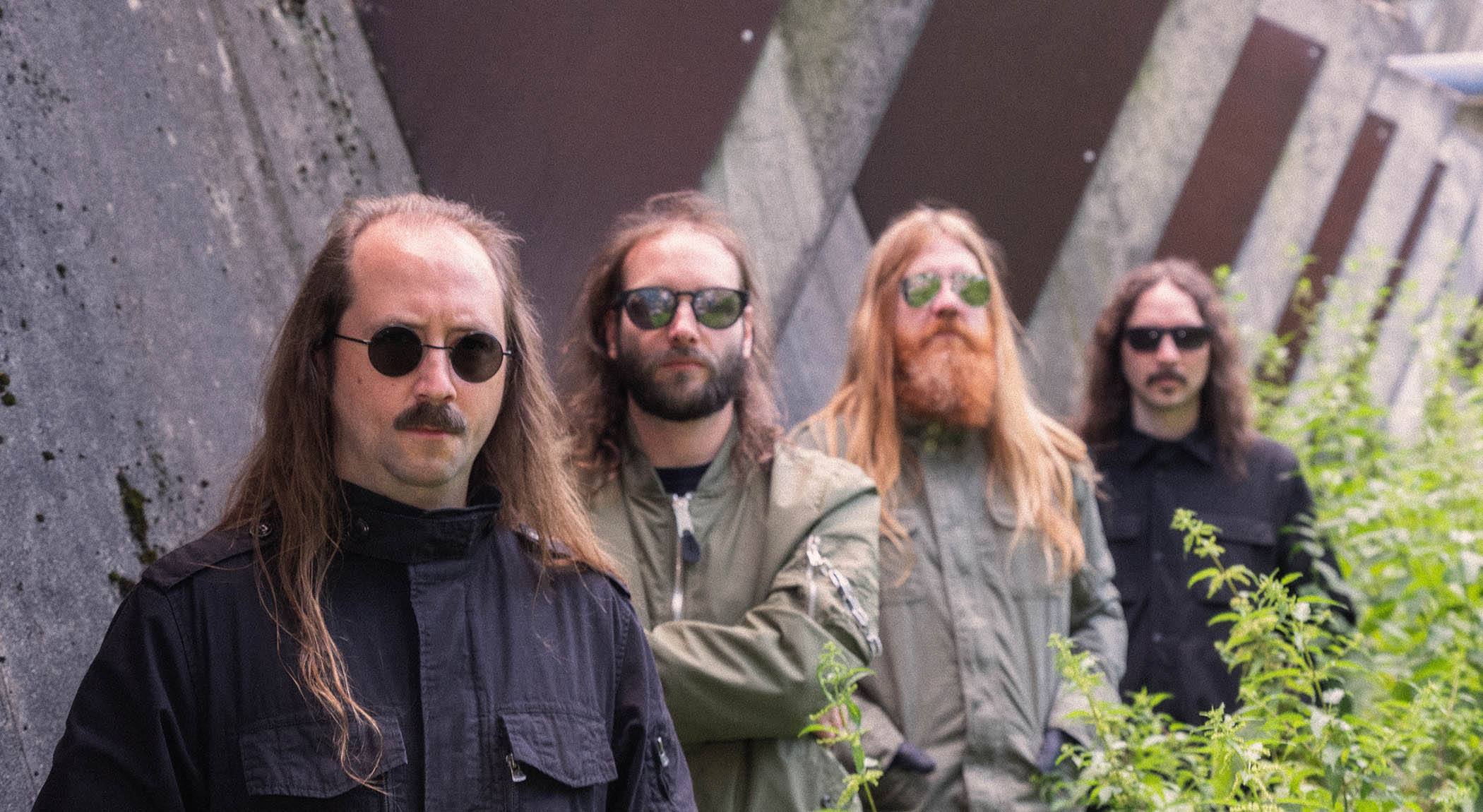
Kolontyrsky: “Sometimes I’ll write a riff and see what it sounds like with this kind of chorus or delay, or maybe just with full-on gain.”
Riedl: “One of the riffs on The Message – I think it’s in the third part– is like this big speed metal break with one guitar, then it goes into this lava solo. I actually wrote that on my wife’s bass guitar in LA. I was playing this ’80s Ibanez kinda star-shaped bass and thought, ‘This is the kind of riff I want to play on a bass like this.’”
What was recording at Hansa like? It must be impossible to walk in and not feel the history.
You can tell which equipment was used by Tangerine Dream or David Bowie. And you can use all of it
Paul Riedl
Riedl: “It’s overwhelmingly impossible. It’s radiating vibes – every single area. The couch is the one Brian Eno sat on. The carpet still smells like the ’70s. The window tinting, the light tinting, the clunky old-style German light switches. You can tell which equipment was used by Tangerine Dream or David Bowie because of the markings on the gear. And you can use all of it.”
The ending of the record is a strange kind of ecstasy, like you’ve arrived on some higher plane.
Kolontyrsky: “This is prog. You listen to that in one context and it’s a black metal band playing this epic riff. But when it comes out of the end of this whole journey, it changes how you feel the riff. It’s the progressive idea of changing what that type of riff could mean.”
Riedl: “We had other progressive ideas, like adding the David Bowie piano to this ultra-thuggish slam part. There’s no brutal death slam record that has piano on top of the slam.”
Is there anything you need to add to your live rig to perform Absolute Elsewhere?
Kolontyrsky: “There’s a pedal we just started using – which we used for the release show – the Boss Acoustic Simulator. I remember as a kid, looking in Musician’s Friend, gawking at things and being like, ‘Why the hell would anyone need this!?’ Now I’m in my mid-30s and it’s different!”
Riedl: “It sounds like an acoustic pedal, but almost not. It more closely approximates the sound of the Stratocaster through the Fender Twin and the Roland Jazz Chorus. I saw a live video of us playing The Message, playing that kind of clean strumming, Lykathea Aflame blastbeats part, it sounds very cool with the Acoustic Simulator running through the delays and the chorus.”
Kolontyrsky: “It has the body level on it, like how thick the wood would be. It’s a pretty neat pedal.”
Do you know what you’re doing next?
Riedl: “Even before this album came out, we had ideas for new songs, new riffs – which has never happened before. We were so motivated and excited about Absolute Elsewhere that we now definitely have some of the craziest ideas so far.”
Kolontyrsky: “Every day we hear crazy news about this record [since this interview was conducted, it was named Metal Hammer's album of the year – Ed], and we’re so happy about it. But moving forward, I’m more inspired by Blood Incantation to make more Blood Incantation.”
- Absolute Elsewhere is out now via Century Media.
Jonathan Horsley has been writing about guitars since 2005, playing them since 1990, and regularly contributes to publications including Guitar World, MusicRadar and Total Guitar. He uses Jazz III nylon picks, 10s during the week, 9s at the weekend, and shamefully still struggles with rhythm figure one of Van Halen’s Panama.

![The Message [Tablet I] - YouTube](https://img.youtube.com/vi/aT6qK_hfS3E/maxresdefault.jpg)
![The Stargate [Tablet II] - YouTube](https://img.youtube.com/vi/F6LVxFL-6NA/maxresdefault.jpg)
![The Message [Tablet III] - YouTube](https://img.youtube.com/vi/tz_YBkl3QUw/maxresdefault.jpg)
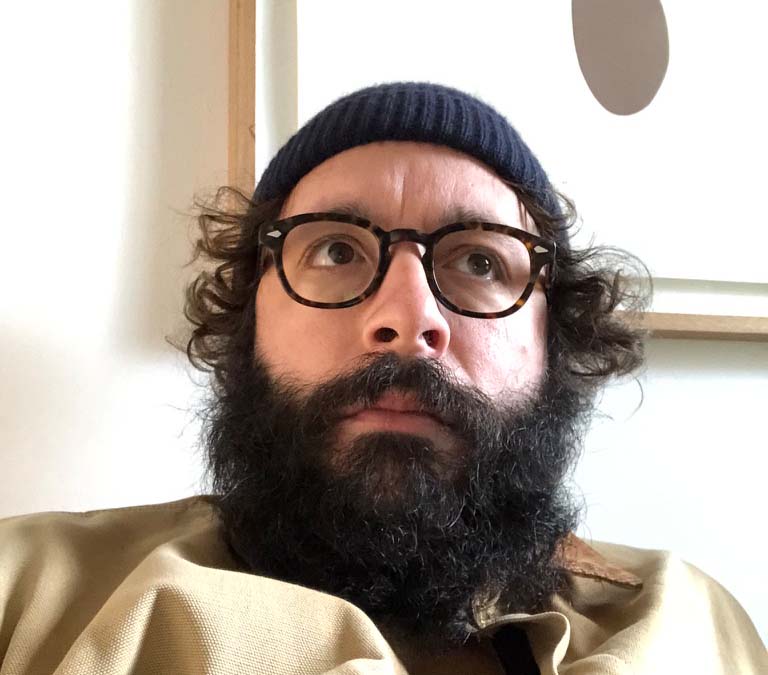


![[from left] George Harrison with his Gretsch Country Gentleman, Norman Harris of Norman's Rare Guitars holds a gold-top Les Paul, John Fogerty with his legendary 1969 Rickenbacker](https://cdn.mos.cms.futurecdn.net/TuH3nuhn9etqjdn5sy4ntW.jpg)







